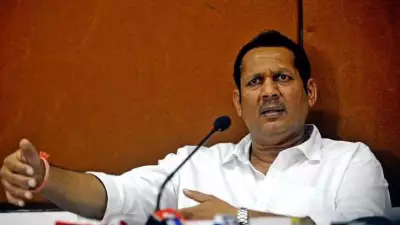
Delhi Court Acquits Son in Father's Murder: A Victory for Natural Justice
In a significant ruling that reinforces fundamental principles of criminal justice, a Delhi court has discharged a man accused of murdering his own father, stating that mere motive and uncorroborated disclosure statements cannot form the basis for framing charges. The judgment delivered by Principal District and Sessions Judge Nisha Sahay Saxena emphasizes the critical importance of substantive evidence over suspicion in criminal proceedings.
The Legal Reasoning Behind the Discharge
The court observed that proceeding to trial based solely on disclosure statements without independent verification would constitute a violation of natural justice principles. Judge Saxena categorically stated that "when nothing except a disclosure statement exists against an accused, without independent corroboration or supporting evidence, proceeding to trial becomes an exercise in futility and harassment."
The judgment further elaborated that such cases fail to meet the legal threshold of 'sufficient ground for presuming' guilt required at the discharge stage under Indian criminal procedure. The court emphasized that "charge cannot be framed on motive and bare disclosure alone without additional corroborative evidence."
Case Background and Key Allegations
The case involved the murder of Ramesh Bhardwaj in January, who was allegedly visiting his former employee and friend Jitendra when the incident occurred. The prosecution's case primarily relied on a disclosure statement made by co-accused Abhishek, Jitendra's son, who claimed they conspired to murder Luv's father near the Red Light of Harish Chander Hospital in Delhi.
Abhishek alleged that Luv offered Jitendra Rs 10 lakh to murder his father and had paid Rs 40,000 in advance. The prosecution also cited property disputes between the deceased and his son as motive, noting that Ramesh Bhardwaj had been living with his daughter Ekta Arora and her two children for the past year.
Legal Arguments and Court's Scrutiny
Advocate Pradeep Khatri, representing Luv Bhardwaj, successfully argued that "no person can be compelled to face trial solely on the basis of motive or a bare disclosure statement without independent corroboration." Meanwhile, Additional Public Prosecutor Girish Giri opposed the discharge plea, contending that Luv had conspired with the co-accused and that property disputes and financial considerations provided strong motive supported by witness statements.
The court, however, noted several critical flaws in the prosecution's case. It pointed out that disclosure statements could be obtained through questionable means or could be fabricated, making independent verification essential. The judge specifically highlighted that the formula "motive + uncorroborated disclosure about conspiracy location" was insufficient for framing charges.
Broader Implications for Criminal Justice
In her landmark order, Judge Saxena invoked the time-honored legal principle: "It is better that ten guilty persons escape than one innocent suffer." The court underscored that charging an accused with murder based solely on motive would violate fundamental principles of criminal justice, including:
- The presumption of innocence
- Protection against wrongful prosecution
- The requirement of substantive evidence before trial
The court also made a crucial evidentiary finding, noting that the disclosure statement by co-accused Abhishek against Luv was not admissible as evidence since it did not lead to any discovery of facts. Meanwhile, the other accused, Jitendra and his son Abhishek, were formally charged with the murder on November 18.
This judgment serves as an important reminder of the safeguards built into India's criminal justice system to prevent wrongful prosecution and protect the rights of the accused against mere suspicion and uncorroborated allegations.





